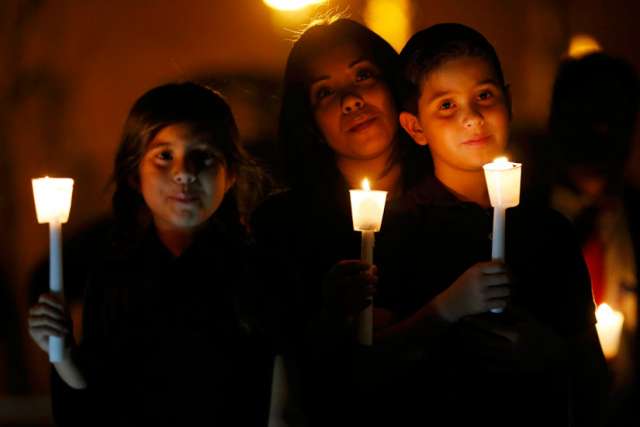His answer, in essence, says this: Despite your pain, there is something very right with you. You have moved past being a religious neophyte, past an initiatory stage of religious growth, which was right for you for its time, and are now being led into a deeper, not lesser, faith. Moreover, that loss of fervour has brought you to a deeper maturity. So, in effect, what you’re asking is this: I used to be quite sure of myself religiously and, no doubt, probably somewhat arrogant and judgmental. I felt I understood God and religion and I looked with some disdain at the world. Then the bottom fell out of my faith and my certainty and I’m now finding myself a lot less sure of myself, considerably more humble, more empathetic and less judgmental. What’s wrong with me?
Asked in this way, the question answers itself. Clearly that person is growing, not regressing.
Lost is a place too. Christina Crawford wrote those words, describing her own painful journey through darkness into a deeper maturity. To be saved, we have to first realize that we’re lost, and usually some kind of bottom has to fall out of our lives for us to come to that realization. Sometimes there’s no other cure for arrogance and presumption than a painful loss of certitude about our own ideas about God, faith and religion. John of the Cross suggests that a deeper religious faith begins when, as he puts it, we are forced to understand more by not understanding than by understanding. But that can be a very confusing and painful experience that precisely prompts the feeling: What’s wrong with me?
A curious, paradoxical dynamic lies behind this: We tend to confuse faith with our capacity on any given day to conjure up a concept of God and imagine God’s existence. Moreover, we think our faith is strongest at those times when we have affective and emotive feelings attached to our imaginations about God. Our faith feels strongest when bolstered by and inflamed by feelings of fervour. Great spiritual writers will tell us that this stage of fervour is a good stage in our faith, but an initiatory one, one more commonly experienced when we are neophytes. Experience tends to support this. In the earlier stages of a religious journey it is common to possess strong, affective images and feelings about God. At this stage, our relationship with God parallels the relationship between a couple on their honeymoon. On your honeymoon you have strong emotions and possess a certain certainty about your love, but it’s a place you come home from. A honeymoon is an initiatory stage in love, a valuable gift, but something that disappears after it has done its work. A honeymoon is not a marriage, though often confused with one. It’s the same with faith; strong imaginative images of God are not faith, though they’re often confused with it.
Strong imaginative images and strong feelings about God are, in the end, just that, images. Wonderful, but images nonetheless, icons. An image is not the reality. An icon can be beautiful and helpful and point us in the right direction, but when mistaken for the reality it becomes an idol. For this reason, the great spiritual writers tell us that God at certain moments of our spiritual journey “takes away” our certainty and deprives us of all warm, felt feelings in faith. God does this precisely so that we cannot turn our icons into idols, so that we cannot let the experience of faith get in the way of the end of faith itself, namely, an encounter with the reality and person of God.
Mystics such as John of the Cross call this experience of seemingly losing our faith “a dark night of the soul.” This describes the experience where we used to feel God’s presence with a certain warmth and solidity, but now we feel like God is non-existent and we are left in doubt. This is what Jesus experienced on the cross and this is what Mother Teresa wrote about in her journals.
And while that darkness can be confusing, it can also be maturing. It can help move us from being arrogant, judgmental, religious neophytes to being humble, empathic men and women, living inside a cloud of unknowing, understanding more by not understanding than by understanding, helpfully lost in a darkness we cannot manipulate or control, so as to finally be pushed into genuine faith, hope and charity.
(Fr. Rolheiser can be reached at ronrolheiser.com.)


